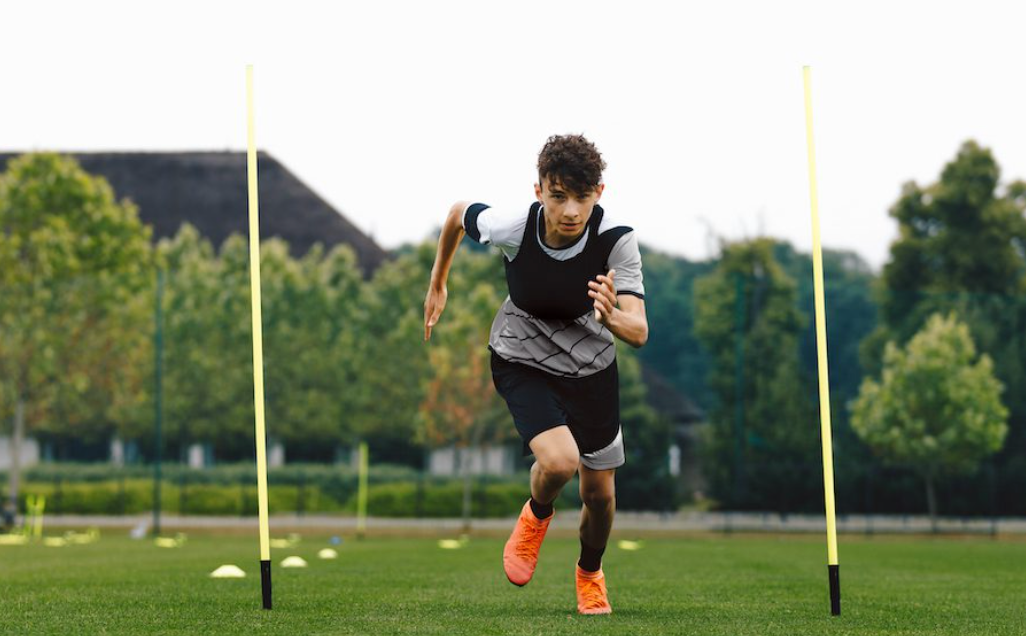
Does Sleep Affect Athletic Performance Thru the Teenage Years?
|
|
Time to read 3 min
|
|
Time to read 3 min
Teenage athletes constantly push their bodies to the limit—whether on the field, in the gym, or during competitions. However, one often overlooked aspect of athletic performance is the importance of sleep . During the teenage years, when bodies and minds are rapidly developing, sleep plays a critical role in physical recovery, mental clarity, hormone regulation, and overall performance. Neglecting proper rest can have far-reaching consequences for both athletic ability and long-term health.
Teenagers require more sleep than adults due to the physical and mental demands of their growing bodies. According to the National Sleep Foundation, teenagers should aim for 8-10 hours of sleep each night. However, many young athletes don’t meet these recommendations due to busy schedules, early practices, and academic pressures.
For teenage athletes, sleep is even more essential because it directly influences:
Physical Recovery : Sleep is when the body repairs muscle tissues and replenishes energy stores. During deep sleep, the body releases growth hormones, which are vital for muscle development and repair. Without adequate sleep, muscles are slower to recover, increasing the risk of injury and reducing the effectiveness of training.
Testosterone Levels and Hormonal Balance : For male teenage athletes, sleep is crucial for maintaining healthy testosterone levels. Testosterone is a key hormone for muscle growth, strength, and endurance. Studies show that just one week of sleep deprivation (sleeping 6-7 hours instead of the recommended 9 hours) can cause a 10-15% decrease in testosterone levels . That’s equivalent to aging by 11 years! If a 16-year-old male athlete doesn’t get enough sleep, he may have the testosterone levels of a 27-year-old, which can significantly affect performance, recovery, and muscle development.
Mental Sharpness and Focus : Athletes rely heavily on cognitive skills such as decision-making, focus, and reaction time, all of which are directly affected by sleep. A tired brain is slower to react, which can hinder an athlete’s ability to perform at their best during high-pressure situations.
Energy and Endurance : Sleep deprivation can lead to decreased stamina and endurance. Athletes may find themselves feeling fatigued much earlier during games or training sessions. This can lead to underperformance and the inability to reach peak athletic output.
Mood and Emotional Regulation : Lack of sleep can cause irritability, stress, and emotional instability. Teenagers who are sleep-deprived are more prone to anxiety and frustration, which can affect both their performance and their interactions with teammates and coaches.
When teenage athletes don’t get enough sleep, the negative effects can be noticeable both on and off the field:
Reduced Reaction Time : Sleep deprivation can slow down an athlete’s reaction time, which is critical in sports like basketball, soccer, or track, where split-second decisions can mean the difference between winning and losing.
Increased Risk of Injury : Fatigue from lack of sleep increases the risk of injury. Slower reflexes, impaired judgment, and reduced coordination can make athletes more prone to accidents, whether it's tripping, misjudging distances, or failing to avoid a collision.
Decreased Strength and Speed : Without adequate sleep, muscles don’t recover properly, leading to reduced strength and speed. Over time, this can hinder an athlete's overall development and limit their performance potential.
Teenage athletes can take steps to improve the quality of their sleep and, in turn, enhance their athletic performance. Here are some tips to help:
Create a Consistent Sleep Schedule : Encourage athletes to go to bed and wake up at the same time every day, even on weekends. This helps regulate their internal clock and ensures they get the rest they need.
Limit Screen Time Before Bed : The blue light emitted by phones, tablets, and computers can interfere with the production of melatonin, the hormone that regulates sleep. Encourage athletes to avoid screens at least 30 minutes before bedtime.
Prioritize Recovery : After intense training or games, teenage athletes should focus on post-workout recovery routines that include stretching, hydration, and nutrition. A relaxed body is more likely to fall asleep easily and recover properly.
Create a Relaxing Bedtime Routine : Encourage relaxation techniques like reading, deep breathing, or light stretching before bed to signal to the body that it’s time to wind down.
Pay Attention to Nutrition : A balanced diet rich in proteins, healthy fats, and complex carbohydrates will help teenage athletes fuel their bodies for both training and recovery. Avoid heavy meals or caffeine close to bedtime, as they can interfere with sleep.
Create a Sleep-Conducive Environment : A dark, quiet, and cool room is ideal for sleep. Consider blackout curtains and sound machines if the environment is too bright or noisy.
For teenage athletes, sleep isn’t just about rest—it’s an essential component of peak performance, physical recovery, and hormonal balance. Prioritizing sleep can help athletes perform at their best and protect their bodies from injury, hormonal imbalances, and burnout. By creating good sleep habits, teenagers can set themselves up for success both on and off the field, maximizing their athletic potential and long-term health.
Your Cart is Empty
